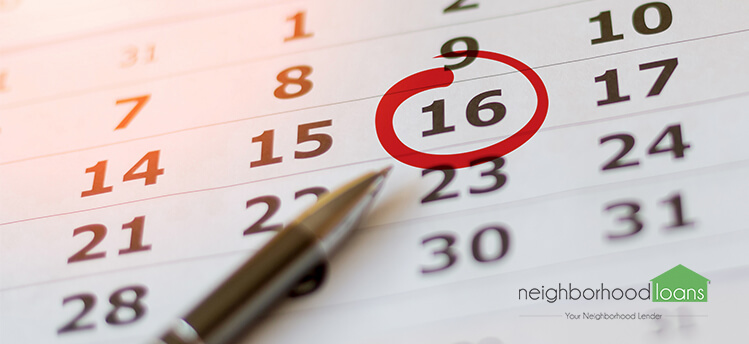What to Expect When You Are Closing

So, you found a home within your price range, that has the right number of bedrooms, and even has a wraparound porch perfect for lazy Sunday mornings.
Before you start helping move the current residents out of the home, several other things need to be taken care of.
As a future home buyer, you need to get approved for a mortgage loan, have the house inspected, get an appraisal, possibly hire an attorney, and schedule your move-in day.
Lots to do in little time – mainly because you are too eager to wait any longer.
Buying a home is probably the biggest investment you’ll make; it deserves careful consideration because it’s your time and money. It’s important to be patient and comfortable with every decision made during the mortgage process.
From beginning to end, you need to be fully aware of what is going on. Although it is common to lose focus near the end, this is not the time to mentally check out.
The closing day is one of the most important steps in the mortgage process.
Start strong and finish stronger.
Before you circle a random closing date on your calendar, here is everything you need to know about this monumental day.
Schedule the closing

Once you have contracts drawn up and have been approved for a mortgage loan, it is tempting to schedule the closing day as soon as possible.
Unfortunately for impatient people, all good things take time.
This lesson applies in many aspects of life and will be most useful during the mortgage process.
Experts advise buyers to schedule their closing date on the 20th or 25th of the month. This is preferred because buyers can walk through the home one last time and address any last-minute issues.
Although many people tend to schedule on the last day of the month, this is not smart because buyers won’t have enough time before the month ends to report any issues.
Once you have a date selected that works for you and all other parties involved, you have reached the final stretch of this process. However, you need to be patient and flexible especially during the closing phase.
Leading up to the closing date, problems may occur and create some chaos. The date could get pushed back, making things a little more complicated on both ends.
Whatever the case may be, you need to remain calm and be adaptable to any change that could arise.
With so many unpredictable scenarios, you need to budget the appropriate amount of time for your closing day. This does not mean schedule your closing during your one-hour lunch break.
Your mortgage process should be handled delicately and efficiently from start to end.
The closing portion of the home buying experience typically lasts more than one hour.
If you are scheduling during the workweek, consider taking a half or full day off. You want to end this process on a good note and not forcefully rushed.
Avoid end-of-month closing
Like mentioned before, scheduling your closing date on the last day of the month is not a smart move.
If something were to go wrong, you would want a few days in advance to resolve the issue before the month ends.
Why rush through the biggest investment of your life and be tied down to something that does not meet your standards?
However, if you decide to schedule to close on the last day of the month, you are testing your luck.
There is a chance your deal may not be completed by the end of the day. If this is the case, you will have increased closing costs, beginning at the start of the following month.
This is because the prepaid interest due at closing is spread throughout the month. This can be avoided or reduced if the closing date is near the end of the month.
Final walk through

The final walkthrough allows buyers to observe and inspect the home one last time before closing.
Buyers have 24 hours before closing to evaluate the home and determine if there is any damage.
If the buyer finds any issues, they have the right to negotiate with the seller on any repairs.
When buyers walk through, they should have the appraisal report in hand so they can check if specific issues or maintenance work was taken care of by the seller.
If the buyer does find a deal-breaking problem or issue that should have been resolved, they should address the problem with the seller.
Many people believe they do not need to partake in the final walkthrough.
This is not a smart idea.
Experts encourage buyers to walk through their home before closing. Buyers are given the opportunity to spot out any problems before they are locked in.
Why risk the chance of being unhappy with something you are legally and financially bound to?
Also, this reassures buyers that their new home is the right choice.
Wondering what you should be looking for during the final walkthrough? Use this helpful checklist on how to walk through your home one last time.
Documents you should have
As expected, the mortgage process involves many pieces of information and documents.
Your lender will require specific personal information so they can accurately evaluate and determine what kind of loan you qualify for.
Do not show up empty-handed and find out everything you need to bring for your mortgage loan application.
It is extremely important to carry all documents with you during the home buying process.
This will help your lender and make the mortgage process fast and easy.
It is a good rule of thumb to carry a copy of your contract, a copy of your inspection report, and any documents that had to be taken to the bank so they can approve you for a mortgage.
By having these documents on you during all appointments, you can potentially speed up your mortgage process.
Recruit your team

Thankfully, you do not have to go through this process alone.
There are many people involved in your mortgage process aside from you and the seller.
The “team” you’ve recruited to help you through the home buying experience is ready to get the job done.
From start to finish, the same group of people is usually involved.
As for the closing day, you will need your team available and ready to go.
Depending on the city and state you live in, it might require specific people to be present.
Generally, the following people are present for a majority of closings:
- Home seller
- Seller’s real estate attorney
- Title company representative
- Attorney(s) – buyer and seller may have attorneys
- Closing agent
- Mortgagor (you)
- The mortgagee (lender)
Avoid delaying your closing day by strategically scheduling a day that works for all parties.
Talk with your lender and figure out who is required to be present. From there, find out which days and times work for all mandatory parties involved.
By being proactive, you will avoid problems and increase your chances of completing your transaction.
What documents you will receive

During the closing phase of the mortgage process, many documents are involved that require signatures from the seller and buyer.
As the seller, signatures are needed on documents that transfer the property of ownership to the buyer.
As the buyer, you will receive and sign documents that will discuss the mortgage agreement between you and the lender.
At closing, escrow payments and closing costs are paid.
Next, the buyer will need to sign the settlement statement that addresses the costs related to the home sale.
The buyer’s signature is also needed on the mortgage note statement, this document keeps the buyer accountable for repaying the loan and states that they agree to the terms and consequences
Lastly, the buyer needs to sign the deed of trust securing the mortgage note.
As you can see, there are many documents involved just in the closing process. To avoid signing off on something you do not agree to, review all documents.
This is where the possibility of hiring an attorney comes into play. They can help clarify terms and agreements expressed in the contract.
It is important to carefully read all documents before the closing day so you can address any issues or review any red flags.
Expect the unexpected
Unfortunately, not all transactions are perfect.
There is always a chance of a problem occurring that can delay the process or cancel the whole deal.
To be prepared for the worst, train yourself to expect the unexpected. If you are aware of potential nightmares, you can develop a backup plan to solve those problems.
Some common issues include the following:
- The lender pulls out at the last minute, therefore the buyer cannot finance the property.
- The buyer does not have enough money. Making sellers scramble to find a new interested buyer and possibly delay their moving plans.
- Not doing a final walkthrough before closing. Forcing yourself to accept any flaws found in the home during your move-in.
- Your finances change because:
- You opened a new credit account
- Locking in on a new auto loan
- Charging an existing credit card, which can delay or cancel your closing.
Wonder what other factors can jeopardize your mortgage experience? Check out this blog on the top 13 no-no’s before closing on a home.
By familiarizing yourself with these unexpected outcomes, you can prepare for the worst and find ways to solve any problems.
It is always a good idea to seek out professional help and representation to guide you through the entire process. These people are specialized to assist you and make your mortgage experience as smooth as possible.
Takeaway
The closing day is the most anticipated day of the home buying process because it is the day you have been patiently waiting for.
Although it is tempting to rush to the end, taking your time with each step, especially with closing day, will benefit you in the long run.
The home buying process is like a marathon, not a sprint.
